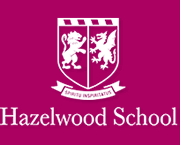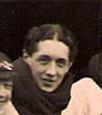
War Memorial
| Captain Edgar Richard BURGESS | |
|
149th Brigade Royal Field Artillery and Staff Date of birth: 23rd September 1891 Date of death: 23rd April 1952 Died aged 60 Unknown |

|
| Edgar Richard Burgess was born at 4 Queensbury Place, London on the 23rd of September 1891 the son of Henry Edward Burgess, a barrister at law, and Eliza Victoria (nee Appleyard) Burgess later of 59 Evelyn Gardens London SW. He was christened at St Stephen's Church, South Kensington on the 4th of November 1891. He was educated at Hazelwood School until December 1904 where he was a member of the Choir. He was a member of the Football XI in 1903 and 1904 and of the Cricket XI in 1904. The school magazine made the following comments on his 1903 football season: - "(Inside left) - Unfortunate in being treated as the "utility man" of the team; has figured also at full back, but is happiest at half: a thorough trier in any position; has learnt to use his head to advantage." They wrote of his 1904 football season: - "(Back) - Has proved to be something of a disappointment; lacks decision, is a weak tackler, and his kicking is without length." They wrote the following on his 1904 cricket season: - "A fair forward bat, but not much idea of hitting; a good field." On leaving the school the magazine wrote the following on him: - "....goes to Eton, and we lose an excellent choir leader and actor, and a useful member of both Elevens." He went on to Eton College where he was in Reginald Saumarez De Havilland’s House from January 1905 to 1910. He was appointed as Head of House in 1909. He was a member of the Shooting VIII from 1908 to 1910 and was winner of the Peek Cup in 1908. He was a member of the Officer Training Corps. He went on to Magdalen College Oxford in 1910 where he achieved a BA in 1914 and later an MA. In the Michaelmas term of 1913 he began a course for the Diploma of Anthropology. He rowed for his College, being a member of the Rowing VIII which won the Grand Challenge Cup at Henley in 1911, and rowed at bow for the Great Britain VIII in the Men’s Coxed Eights at the Stockholm Olympics in 1912 where the team won the Gold Medal. He was the only member of the team not to have won a “Blue” but the following year he stroked the Oxford team to victory in the 1913 boat race and was awarded his “blue” that year. He served as a Corporal in the Oxford University Officer Training Corps and on the 19th of July 1913 he was commissioned as a 2nd Lieutenant in the 7th London Brigade, Royal Field Artillery (Territorial). He passed an examination for a post with the Civil Service in Sudan on the 14th of June 1914 but before he could take it up he was mobilised on the outbreak of war and saw service in France and on the Staff. He also served in Palestine in 1918 and in Darfur in 1922. He was awarded the Sudan General Service Medal and Bar. In 1919 he was elected as a Fellow of the Royal Geographical Society and rowed for the Army eight in the King's Cup at Henley. In 1920 he was elected as a Fellow of the Zoological Society of London. He was married at the English Church at Port Sudan to Hilary Marion (FitzStephen-Lloyd nee Fish) on the 16th of December 1929. He was a member of the Inner Temple and after the war he spent many years with the Sudan Political Service where he lived at Kosti in the White Nile Province. He was Assistant District Commissioner of White Nile Province, District Commissioner of Darfur, Kordofan, Mongalla and Red Sea Provinces until 1928 when he became Deputy Commissioner of Port Sudan until 1931. For his services in the Sudan he was awarded the Egyptian Order of the Nile (Fourth Class) on the 20th of August 1931. He was a member of the Conservative Club, the Bath Club, the MCC and was a member of the Leander Club. On his retirement he remained in Africa and he died at home in Tangiers after a short illness. |
|
| Went on to Eton College |
Back